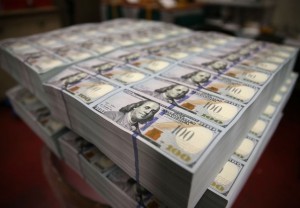 The 21st century has seen an important shift in the forex brokerage sector. Large financial institutions are no longer the only ones able to do this; small companies and solo entrepreneurs can now create online forex brokerage firms that provide exchange services worldwide.
The 21st century has seen an important shift in the forex brokerage sector. Large financial institutions are no longer the only ones able to do this; small companies and solo entrepreneurs can now create online forex brokerage firms that provide exchange services worldwide.
The minimal barriers to entry in this industry do not reduce the strict legal criteria that must be met in order to operate. Trading foreign exchange requires a forex broker licence, which requires a deep understanding of different jurisdictions, licence kinds, and other crucial elements.
Essentials of Forex Brokerage Operations and Licensing
Forex brokers serve a wide range of customers, including central banks and specialised agencies, by running digital trading platforms for foreign exchange internationally. They provide complex trading alternatives, including margin and social trading, in addition to facilitating currency exchanges.
Licensed forex brokers provide a wide range of services; some concentrate on particular services like margin trading, while others offer complete solutions. Their function is essential for stability and liquidity in the world’s financial markets, which impacts a number of industries, including manufacturing and Internet commerce.
Despite its regulations, obtaining a forex broker licence is essential for working lawfully and building trust in the financial industry. In order to prevent financial crimes and build trust with clients who want proof of legal activities, this licence is a critical necessity.
Additionally, licences increase a brokerage’s transparency and help it establish relationships of trust with clients who are suspicious of its actions. They show a broker’s authenticity and compliance, which makes it easier to do cross-border business and obtain funds.
As a result, authorised and offshore forex brokers have more chances of competing on a global level, establishing alliances, and growing their market share.
How to Acquire a Forex Broker License
Acquiring a license means overcoming several requirements and difficulties. Let’s take a look at the following:
Procedure for Acquiring a Forex License
- Selecting a Regulatory Agency and Its Authority: The first step is to determine which jurisdiction is appropriate and what regulations apply there. The regulatory environments controlling forex brokerage businesses vary by jurisdiction. Understanding these requirements is crucial for both preparation and compliance.
- Create a Business Plan and Get Investment: A detailed company plan that outlines operations, marketing tactics, and funding is required. It’s common to prove you have enough trading capital to obtain a licence. Smaller organisations might have to look for partners or investors in order to achieve these financial requirements.
- Company Registration: Depending on the jurisdiction, registering a forex trading company might be difficult or easy. While some regions require only basic registration and minimum paperwork, others require extensive financial records and evidence of operational capability.
- Obtain and Preserve the Licence: You can apply for a forex broker licence if you have the required finances, registration, and compliance paperwork in order. Approval times can differ; more broad licences need validation of business models and thorough background checks. For the licence to be kept active after acquisition, compliance with legal requirements and preparation for periodic audits are essential. When a licence is suspended due to noncompliance, it may not be possible to get it back.
What Types of Forex Broker Licenses exist?
Forex licences allow brokerage businesses different levels of access and limits and are categorised based on the countries in which they operate.
Category A
The most respected forex trading license is usually found in the USA and Switzerland. It offers unrestricted access to key FX exchanges. A brokerage must pass strict regulatory inspections and have at least $20 million in trading capital in order to obtain this licence.
Category B
Provides a more accessible route, with capital needs between $100,000 and $1 million. This category, which is offered in Australia and the UK, offers a reputable status that promotes partnerships, compliance, and liquidity.
Category C
Signifies a more straightforward licensing choice without any particular operational or regulatory requirements. It works well for smaller brokers targeting regional markets since it provides legitimacy without the considerable expenses connected with higher categories.
Category D
It is the easiest to obtain because it doesn’t have strict guidelines for compliance, audits, or large capital investments. Regulators and international organisations see it as less complete, even though it enables brokers to launch operations rapidly.
From what we’ve seen, every category is designed to accommodate varying brokerage sizes and objectives, ranging from those looking to enter the market right away to those seeking international recognition and a wide range of operations.
Final Thoughts
To operate on the global stage, gain access to liquidity, forge important alliances, and get a competitive advantage in the market, a forex broker licence is necessary.
Obtaining such a licence requires significant time, money, and effort. However, it’s a calculated move made by successful forex agencies to match their activities with market and regulatory requirements, highlighting how crucial it is to choose the appropriate licence category for your company’s goals.
